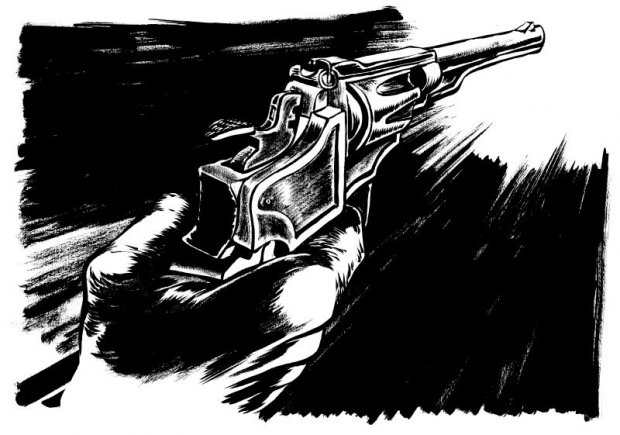
None of the people accused of killing metallurgist Alysson Ruela were convicted. This is not one of those cases where the police had not indicted a suspect, though. Civil Police had indeed indicted a couple for the murder which was committed in June 2010. They were respondents in a case opened by the Jury Tribunal Court of Curitiba. But the couple was murdered before their trial took place.
The investigation carried out by reporters of Gazeta do Povo showed that this situation is common: a suspect of a homicide is more likely to be murdered than to receive a sentence from the Justice. Until this day, for example, 28 individuals were sentenced for homicides in Curitiba in 2010.The number of people suspected of committing homicides who were killed over this period of time is nearly twice as numerous: 54 cases. Out of the 54 cases, fifty two were murdered while the police was investigating the case. In only two cases, the homicides took place after the police had already indicted suspects.
Just like what happened with Alysson, the case was shut because there weren´t suspects anymore. Technically speaking, Justice calls this process: "extinction of guilt following the death of an agent." In shorter terms, this refers to a failure from the State.
English philosopher John Locke affirmed that members of a society go from barbarians to civilized individuals when citizens stop punishing their peers with their own hands (The State of Nature) and delegate this function to the State . When the institutions fail to deliver a punishment, the risk of retrograding exists a comeback to a state of salvages where justice is done with the peoples own hands.
"When people have the feeling that they have been abandoned, when crimes are not solved, when people are assaulted and murdered, a part of society starts to accept illegal measures to deliver justice. Therefore, killing mobs, death squads, which are a populist vision of justice, appear to bring vengeance. Modern law broke away from this vision more than two hundred years ago," says Michel Misse, coordinator of the Study Group on Citizenship, Conflict and Urban Violence at the Federal University of Rio de Janeiro (UFRJ).
Death rowAccording to the version provided by the Homicide Unit, Weslley and Jenifer went to a pub to meet Alysson Ruela on June 27th, 2003. They were body checked at the entrance of the pub, located in the Tatuquara neighborhood. But according to some witnesses, the couple hid a firearm in the Jenifer´s three-year old son baby cart. According to the police, an argument broke out in the pub and Weslley shot four times. Jenifer and Wellsley denied being the authors of the crime.
After interviewing ten witnesses, policemen believed that they had enough to indict the two individuals as responsible for the homicide. The Public Prosecutor Office agreed and launched the process. Weslley was killed in a shooting in January 2011 along with two other people. Jenifer remained the only defendant.
Jenifer was never trialed either. She survived a first assault but became paraplegic. The second assault was fatal. Sitting on her wheelchair, she died after receiving twelve gunshots. Following the womans death, the Judiciary shut down the case.
Criminals established "death sentence" in Brazil, says Prosecutor
The fact that crime suspects end up being killed before being trialed shows that a "parallel state" rules in Brazil and established death sentence, says Prosecutor Marcela Marinho Rodrigues. In charge of the Bureau of Lethal Crimes, which follows the work of the police investigating homicides in the city, the Promotor says that only a "better organized and present" action from the State could bring this situation to an end.
According to her, the murder of criminals is the consequence of gang feuds more than the result of the States delay to punish crimes. But she claims that acting on both fields is necessary to tackle the issue: punishing crimes in a quicker and more efficient way and acting so as to urbanize poor areas and offer basic public services to the population.
For Michel Misse, from the Study Group on Citizenship, Conflict and Urban Violence at the Federal University of Rio de Janeiro (UFRJ), a vicious circle undermines the country. "We need the police to solve crimes, and know who the author is. This person must be trialed according to the law. When you fail to do this right, you are in the worst possible world, because you end up having criminals killing police officers and police officers killing criminals. This is a vicious circle which results from the accumulation of social violence."



